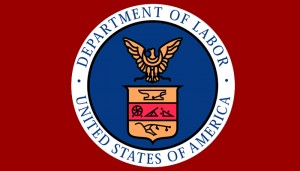This change in federal law significantly increases the minimum salary threshold for overtime pay ineligibility. Thus, many employees currently ineligible for overtime pay will soon be entitled to premium pay for any hours worked beyond 40 hours in a week.
The Fair Labor Standards Act requires employers to pay their employees premium pay for any hours worked beyond 40 in a workweek. Salaried employees employed in an executive, administrative, or professional capacity, however, are exempt from overtime compensation so long as they meet certain salary minimums. These are commonly known as “white-collar exemptions.” In order to qualify as a white-collar employee exempt from overtime eligibility: (1) the employee must be salaried, (2) the employee’s salary must meet a minimum amount, and (3) the employee’s job must primarily involve executive, administrative, or professional responsibilities. The recent final rule increases the minimum salary threshold for white-collar exemptions from $455 per week ($23,660 annually) to $913 per week ($47,476 annually).
Thus, for example, an office manager who currently earns $30,000 per year and qualifies as a “white-collar exempt” employee is ineligible for overtime pay under FLSA for any hours beyond the 40-hour workweek. Once the final rule goes into the effect in December, however, that same employee will be entitled to time-and-a-half pay for time worked beyond 40 hours in a week.
The rule change will also affect employees who are not “white-collar exempt” but are otherwise exempt as “highly compensated employees.” A highly compensated employee must meet a minimum salary threshold, be employed primarily for office or non-manual work, and regularly work in an executive, administrative, or professional capacity. The recent rule increases the salary threshold for highly compensated employees from $100,000 to $134,004 annually. The change in the salary threshold puts highly compensated employees in the 90th percentile of full-time salaried employees nationwide.
To ensure that the exemption tests do not become outdated, the new rule includes a provision that automatically updates the salary and compensation basis every three years based on wage growth. The automatic updates will begin on January 1, 2020, and the Department of Labor will publish a notice of each new threshold in the Federal Register at least 150 days before it is implemented.
Federal law places the burden on employers to keep track of all hours worked and pay earned by non-exempt employees and the FLSA imposes significant penalties on employers who fail to keep adequate time and payment records. Consequently, employers will have to continue to keep track of the hours worked and pay earned by employees to ensure those employees entitled to premium pay receive the correct compensation. Additionally, employers must be careful to update who receives premium pay each time FLSA modifies the salary thresholds.
If you have questions about whether your employees are eligible for overtime, or will become eligible beginning December 1, 2016, you should contact an attorney who can thoroughly review the eligibility requirements with you. Similarly, if you are unsure whether you are keeping adequate pay and hours records for your overtime-eligible employees, please contact your attorney to review your current recordkeeping practices.
This is Stephanie Dinan’s first contribution to Virginia’s Land Sense. She is currently a summer associate with the firm and a third-year law student at William & Mary Law School. Shareholder Michael Kalish edited this article and can be reached directly by email to discuss these FLSA changes and how they may affect your business, or other issues related to the FLSA.







